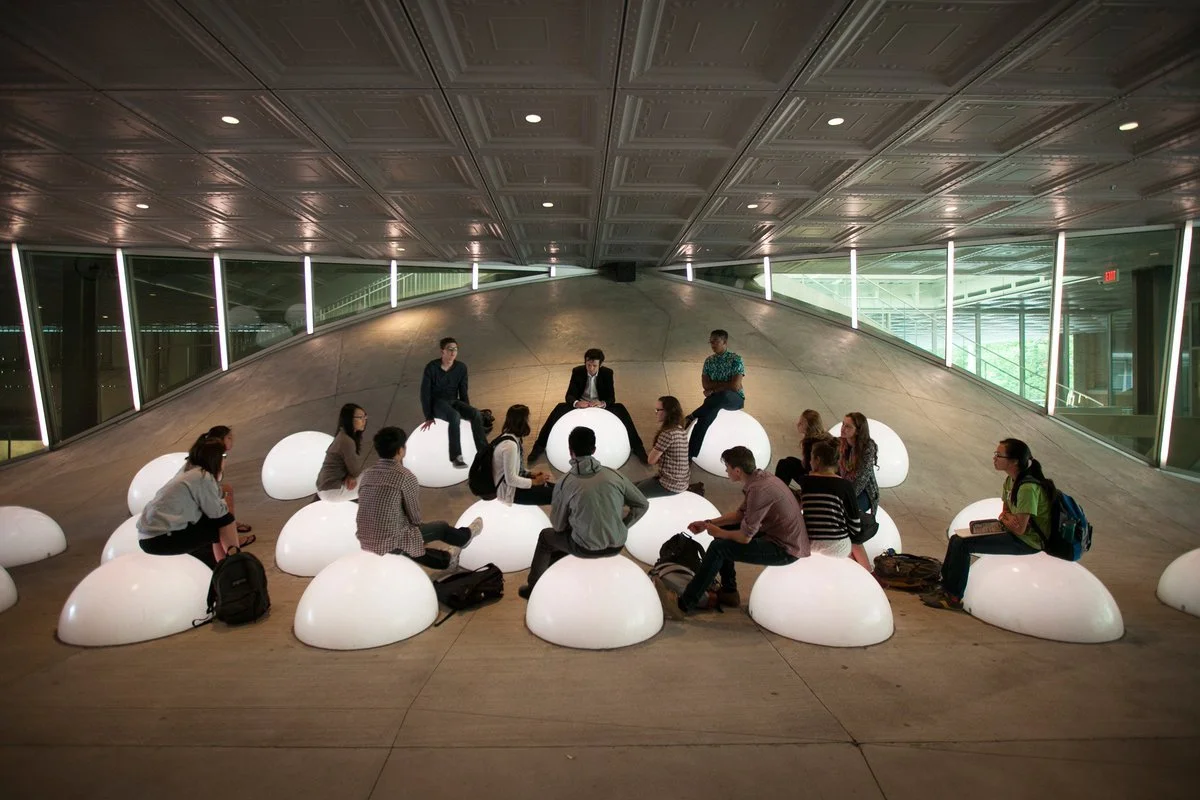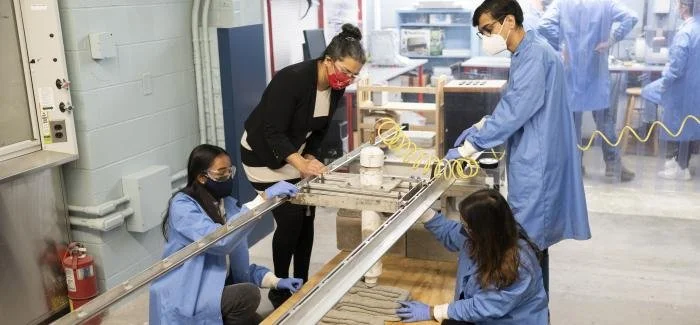How to get into Cornell
What is Cornell’s reputation?
“huge campus” “magnificent gorges” “cold, gloomy weather for half the year” “pre-professional” “best engineering and computer science in the Ivies” “extremely rigorous” “the easiest Ivy to get into, but the hardest to graduate from” “hippie-crunchy” “lots of hills” “strong alumni network” “rural and remote” “tons of kids from New York” “unlimited courses to choose from” “the most insecure Ivy” “think Andy from The Office”
Cornell is the largest Ivy League school by a wide margin. In fact, with 16,000 undergraduates (compared to 6,500 for a mid-sized Ivy like Yale) it can feel like a big public university (which it partially is). It’s also one of the only Ivy League schools where first-year applicants have to apply to a specific undergraduate college within the larger university, including: 1) Arts and Sciences, 2) Business, 3) Engineering, 4) Architecture, 5) Agriculture, 6) Human Ecology, or 7) Labor Relations. The only other Ivies that are separated into undergraduate colleges like this are UPenn and Columbia.
Size matters.
When considering whether Cornell is right for you, a good place to start is with the mammoth size of the school: it’s very big by Ivy League standards. Compared to Cornell’s 16,000 undergraduates, all of the other Ivies seem quite small: UPenn (10,000), Columbia (9,000), Brown (7,500), Harvard (7,000), Yale (6,500), Princeton (5,500), and Dartmouth (4,500). In fact, one quarter of all Ivy League undergrads go to Cornell. This is great if you’re looking to go to a school that’s like a small city where there’s endless possibilities to meet new people, there’s every kind of club you could imagine, and you get to preserve a little bit of your anonymity.
The other big advantage is that while you have to apply to one specific college at Cornell, you’re free to take courses at any of them, and you can even minor in a field that’s not in your particular college (but you’re not allowed to double-major in fields from two different colleges). For example, you can major in psychology from the College of Arts and Sciences, but minor in civil engineering from Cornell Engineering. Or you can major in applied economics and management from the SC Johnson College of Business, but minor in architecture from the College of Architecture, Art and Planning.
We worked with one student who wanted to study computer science at Cornell, and was delighted to discover that she could do this through either the College of Arts and Sciences or through Cornell Engineering; she decided to apply through the College of Arts and Sciences because it was easier to get into, and had a better set of distribution requirements.
This kind of access and flexibility is an incredible resource for students. But, if you’re the type of student who gets overwhelmed by too many options, or wants a smaller, tight-knit community, it might not be right for you.
The Pros of Cornell…
Aside from the size of the undergraduate population, and the wide variety of courses you have to choose from, there’s the stunning natural beauty of upstate New York. Located in the small city of Ithaca, Cornell enchants visitors with its cascading waterfalls, 200-foot gorges, and glistening lakes. Much like Dartmouth, it’s a nature lover’s paradise, and Cornell students love to take advantage of mother nature while they’re here, before jetting off to a major city after graduation.
Cornell students also benefit from a very large and loyal alumni network almost like a big family. Perhaps due to its remote location, students who go here tend to really bond with their classmates and the school in general in a way that might be difficult if there were a major city nearby to distract them. All of the Ivy Leagues have powerful alumni networks, of course, but a few of them like Cornell and Dartmouth seem to particularly go out of their way to help one another, and that can prove invaluable in your career because very often it comes down to “who you know.”
Also, Cornell is the only “land grant” university in the Ivy League, which means it received considerable land from the federal government to study agricultural science for the betterment of society, making it a pioneer in areas such as environmental science, food security, climate change, etc. It also means that New York residents pay about $25,000 less each year in tuition at four of the undergraduate colleges, including: 1) Business, 2) Labor, 3) Ecology, and 4) Life Sciences, and may have a slight admissions advantage to these programs as well.
The Cons of Cornell…
First and foremost, Cornell is freezing cold for much of the year, and snow can stay on the ground from December through March. It can also be rainy, gloomy and gray. While some people couldn’t care less about the weather, it’s a deal-breaker for others. And without an exciting city nearby to provide a distraction from the difficult courseload and inclement weather, some students might become depressed. (While Cornell’s suicide rate is statistically comparable to that of other universities, the school had to install “suicide nets” on their high suspension bridges after after a spate of suicide jumps between 2009-2010. But since 2014, there have been no jumps.)
Other than that, some people like to say disparaging things like “Cornell isn’t a real Ivy” because it’s not as “prestigious” as Harvard, Princeton or Yale. (They say the same thing about Dartmouth, Brown and Penn, by the way.) And while it’s true that those top three schools are probably in a league of their own as far as international prestige, if you graduate from Cornell, you will be poised to succeed in whatever you do in life: you can attend any graduate school, you can get recruited to any firm. The people who matter know the true value of a Cornell degree.
Finally, Cornell has earned a reputation for being a bit of a “grind school.” Like at Princeton, students complain about rampant “grade deflation,” particularly in large introductory courses, where professors grade on a curve, making it very difficult for most students to earn higher than a B. It’s just one of those Ivies that’s known for having a lot of very difficult courses. That’s why some people say it’s “the easiest Ivy to get into, but the hardest one to graduate from,” which isn’t true at all; it’s extremely difficult to get into.
What does Cornell look for in applicants?
Applicants to any of the Ivy Leagues need to demonstrate the same combination of academic excellence and extracurricular achievement. Cornell lists a bunch of “core values” on their website that they presumably use to evaluate candidates, but it’s pretty much the same stuff any of the Ivies are looking for: passion, purpose, curiosity, public service, respect for the environment, etc.
But because you have to apply to a particular college at Cornell, it’s very important in your supplemental essays to highlight why you would be a good fit for that specific program, making sure to mention the courses you want to take, professors you hope to do research with, etc. In a perfect world, it should seem like — given everything you’ve accomplished in the past, and everything you hope to achieve in the future — Cornell is the next logical step in your career progression. In other words, it’s almost like you were made to go there.
Final tips for getting in.
Cornell is one of the Ivy Leagues that still offers a true Early Decision option (as opposed to Single Choice Early Action), and it’s definitely something to consider if it’s your first choice. While the admission rate for Regular Decision applicants is only 5%, the rate for Early Decision applicants is basically four times that: 19%. And bear in mind that Cornell regularly fills about half of its freshman class with Early Decision applicants (51%). That means that if you wait to apply to Cornell with most students in the Regular Decision round, by the time the admissions committee even gets around to looking at your application in January, half of the spots will already be gone. You can read more about the pros and cons of Early Decision here.
Cornell now requires the SAT or ACT
Beginning in Fall 2025 (meaning: for students who plan to enroll at Cornell in Fall 2026), Cornell will require either the SAT or ACT for applicants to all of its undergraduate colleges. This is in stark contrast to the various test-optional and test-recommended policies they had for the last few years. (If you visit their website, the language is a little confusing.)
Cornell’s beautiful campus is located in upstate NY overlooking the Finger Lakes.
Cornell is huge by Ivy League standards with over 16,000 undergrads. Here students celebrate “Slope Day” on the last day of school in May.
Cornell University is divided into seven different undergraduate colleges, which means a history major from the College of Arts and Sciences can take structural design classes from the College of Architecture (pictured).
The weather in upstate New York can be brutal. Be prepared for many days of rain, snow, sleet and gray skies.
The 15 different natural waterfalls on Cornell’s campus are like something out of a dream.
Cornell’s undergraduate engineering school is not only the top-ranked in the Ivy League, but one of the ten best in the nation.






